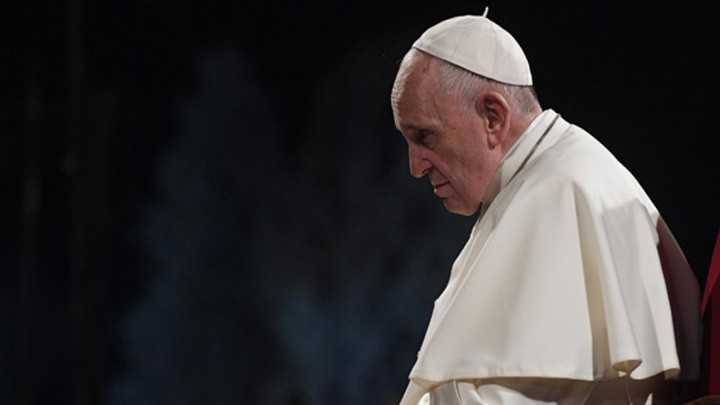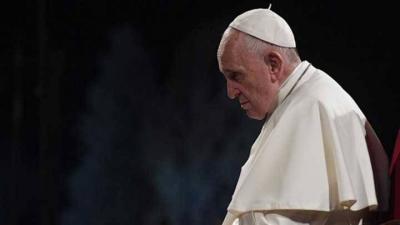From the very beginning, there were doubts surrounding Pope Francis's visit to Lebanon. While the Vatican did "agree" to announce a date for the visit in June, as requested by President Michel Aoun, there was a hard-to-achieve condition behind the Vatican's promise, considering the current geopolitical tensions and the existing political leadership. A Vatican expert indicates that the health reasons for postponing the visit are indeed valid. The Pope requires surgical intervention on his knee joints, which can no longer be postponed. He will need several weeks of rest before returning to his physical activities, making it impossible for him to visit Lebanon during this time.
However, before the health issue came into play, the visit was already strongly poised for postponement for other reasons. From the moment the presidential palace announced the visit in June, officials at the Vatican were surprised, prompting Matteo Bruni, the director of the Vatican's official website, to state that "the visit is merely a hypothesis and is under consideration." Eventually, due to certain necessities, it was confirmed that the visit would take place in June. Nevertheless, the Vatican circles did not show enthusiasm in preparing for it, contrary to usual practice where preparations begin months in advance. This suggests that they did not approach the matter with much seriousness.
It is clear that the Lebanese official and ecclesiastical sides sensed this Vatican aloofness and recognized that the chances of the visit taking place were slim, which could be noticed in the level of official and ecclesiastical preparations. So, what were the Vatican's motives for announcing acceptance of the visit date when it seemed inclined to postpone it before the health factor arose? The Vatican expert explains that when Aoun visited the Vatican, he explained to the Pope the crises Lebanon faces that threaten its existence, influenced by regional and international conflicts, and described the threats to Christians regarding their existence and future, urging him to visit Lebanon soon as that would provide moral support.
The Pope listened to Aoun's explanations with interest. The Vatican gives considerable attention to the situation of Lebanon and Christians in the East. Questions were raised regarding what the Lebanese authorities would do to pull the country out of the crisis, especially following parliamentary elections that could potentially offer an opportunity for a shift in governance mentality and a move away from corruption. Aoun shared this interest and hope for change in the elections.
Accordingly, the Pope expressed willingness to visit Lebanon in June, noting that the decision for the visit was essentially taken in the Vatican, and what was needed was simply to determine the appropriate timing, i.e., the political climate surrounding the visit. If the parliamentary elections were to bring about a change in the management mentality of Lebanon, and if international and regional initiatives could facilitate a way out of the crisis, then the visit might happen after the elections and before Aoun's term ends.
This was precisely the limit of the "promise" that the Pope made to Aoun, which was later reaffirmed through Apostolic Nuncio Monsignor Joseph Spiteri in a message delivered to the President at the beginning of April. The Pope’s visit represents a valuable opportunity to enhance the image of Aoun’s presidency and demonstrate a minimum level of trust in it amid an ongoing slide into chaos.
To recall, a month ago, there was betting on positive outcomes and compromises at the regional and international levels, especially regarding an agreement with Iran and achieving progress in boundary negotiations with Israel, contributing to successful initiatives, particularly the French initiative, and opening the door for dialogue among Lebanese under regional and international sponsorship.
However, the escalation of the war in Ukraine into a quagmire has hindered all international compromises. Unfortunately for the Lebanese, none of the rival powers in Lebanon is willing to relinquish any leverage they possess, nor will they offer any concessions anywhere, including in Lebanon. Thus, the prospects for any initiatives concerning the Lebanese situation appear blocked for the foreseeable future.
This indicates that the current status quo of power will not change in the parliamentary elections, with the major decisions remaining in Iranian hands. In fact, amidst this intense tug-of-war, the Iranians will likely seek to maintain their gains in the arena, reflecting a continuation of the climate of collapse, the corruption of the political class, and chaos. Such conditions are not at all conducive for the Pope's visit to Lebanon. The Vatican seeks to avoid papal visits that would cement the abnormal reality in a given country or bless corruption, injustice, and chaos. Typically, these visits are heralds of potential relief.
In this light, it seems that relief in Lebanon is not easily obtainable unless a miracle occurs. Likely, the Vatican itself no longer believes that Lebanon can witness miracles, given that demons now control it!
- The Republic - Tony Issa




